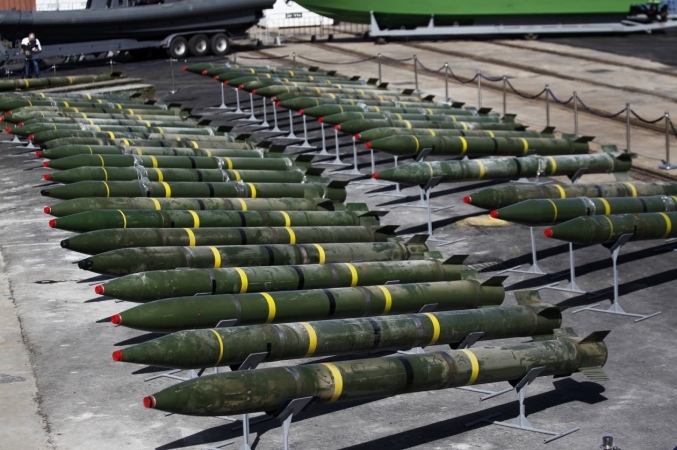
Another Step Towards Nuclear Weapons? Iran Operating Advanced Centrifuges
The nuclear watchdog of the United Nations has confirmed that Iran has started operating a cascade of advanced centrifuges at an underground location.
Rafael Grossi, the director-general of the International Atomic Energy Agency (IAEA), recently told member delegations that the Middle Eastern country has “begun feeding a newly installed cascade of 174 IR-4 centrifuges” to enrich uranium hexafluoride gas up to 5 percent U-235 uranium.
The use of the advanced centrifuges in the Natanz facility is considered to be another violation of the 2015 Joint Comprehensive Plan of Action, which was the Iranian nuclear deal that gave Iran economic relief from sanctions in return for limits to its burgeoning nuclear program.
That agreement allows the nation to only enrich with first-generation IR-1 centrifuges.
The chief purpose of the deal was to prevent the Islamic republic from building a nuclear weapon, which the country insists it does not intend to do. Tehran has long contended that its nuclear program is only for peaceful purposes.
In the watchdog’s report, Grossi said an additional cascade of IR4 centrifuges has been installed in the Pilot Fuel Enrichment Plant near Natanz. Tehran also has suggested that it plans to install a second cascade in the Natanz facility, although that project has yet to begin.
Grossi was able to confirm in November that Iran had started the process of enriching with IR-2m type centrifuges at the Natanz site. Last month, Iran announced that it had installed two cascades of IR-4 centrifuges but did not elaborate on the location.
The new Joe Biden administration has acknowledged that it won’t lift sanctions unless Tehran reverses its breaches of the nuclear deal. Meanwhile, Iran has demanded that the United States lifts it sanctions first before engaging in any further talks.
Last week, a bipartisan group of a hundred forty representatives sent a letter to U.S. Secretary of State Antony Blinken, urging the Biden administration to address Iran’s growing military threat.
“As Democrats and Republicans from across the political spectrum, we are united in preventing an Iranian nuclear weapon and addressing the wide range of illicit Iranian behavior. Since the Joint Comprehensive Plan of Action entered into force, Iran has continued to test ballistic missile technology that could potentially be applied to nuclear capable missiles, funded and supported terrorism throughout the Middle East, and engaged in cyberattacks to disrupt the global economy,” the lawmakers wrote.
“Diplomacy with Iran must limit not only the production of nuclear material but also ensure that Iran cannot develop a nuclear-capable ballistic missile,” they added.
Earlier this week, the Iranian Khorgo underground ballistic missile site was discovered to be nearly operational after satellite images revealed that new launch positions were built there. This particular site, which is located in southwestern Iran, is situated roughly five hundred miles from Kuwait, a country that is home to more than thirteen thousand U.S. soldiers. It is also less than two hundred miles from the United Arab Emirates.
Ethen Kim Lieser is a Minneapolis-based Science and Tech Editor who has held posts at Google, The Korea Herald, Lincoln Journal Star, AsianWeek, and Arirang TV. Follow or contact him on LinkedIn.
No comments:
Post a Comment